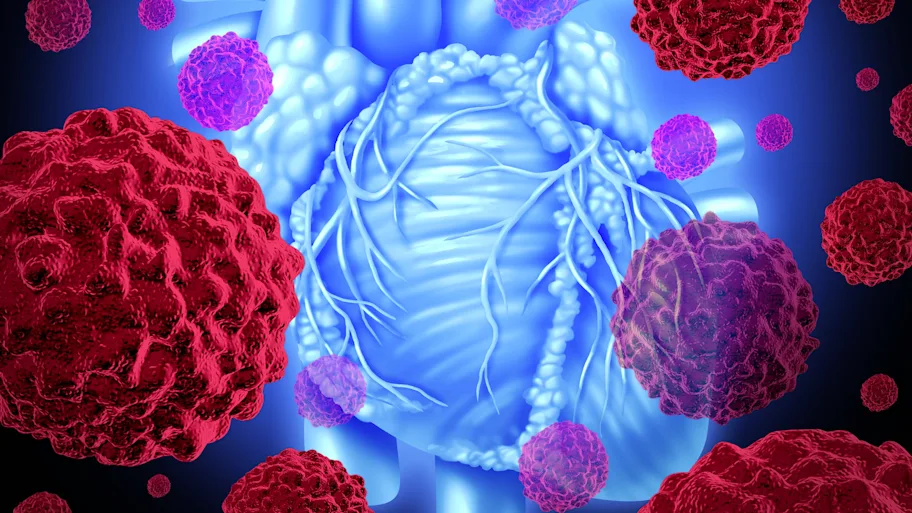
- Science news
- Health
- National Cancer Control Month: Research Topics on Prevention and Treatment
National Cancer Control Month: Research Topics on Prevention and Treatment
By Jaspreet Nijjar, Frontiers in Oncology

National Cancer Control Month provides a great opportunity to acknowledge and celebrate the success surrounding treatment, development of new therapies and technology to improve patient survival. It also offers the opportunity for people to learn prevention strategies including lifestyle changes, and promote early detection by undergoing common tests such as cervical screening, and diagnosis. There is also hope to continue to enhance treatment and therapies and lastly to provide the support and management tools for patients and survivors. To help raise awareness, we have curated a selection of open access Research Topics and articles published within our journal, Frontiers in Oncology.
There is a central focus on the themes surrounding National Cancer Control Month including prevention by furthering our understanding of the role that obesity and chronic metabolic diseases have on cancer, and how to utilise preventative measures. Next in our selection, we have a Research Topic on how patients in pediatric oncology and hematopoietic cell transplant (HCT) are impacted with a discussion around how to improve treatment and outcome to reduce mortality. We then look into gynecologic malignancies which are still extremely common in women and carry a high mortality rate, and how new therapies are being developed. Lastly, we explore the management of oral cancer which includes a discussion around techniques to help improve prevention, diagnosis and treatment.
Our first selected Research Topic explores the effects of obesity on cancer development and the provisional prevention of cancer. Chronic endocrine metabolic syndromes such as obesity are linked to approximately 20% of cancer incidence and are well known to have a strong influence on the development and progression of cancer. This Research Topic hosted by Dr. Gahete et al. titled, "Pathophysiological Interrelationship between Obesity, Metabolic Diseases and Cancer" explores the relationship between endocrine-metabolic diseases and how they impact the dysregulation of hormones and growth factors that influence the development of pathologies including endocrine disorders and cancers. A review article published in the Research Topic by Dr. Ku and Dr. Cheng explores a transcription factor(proteins responsible for the process of conversion or transcription of DNA into RNA) with a core focus on Activating Transcription Factor (ATF3). The article explores how ATF3 influences glucose metabolism, adipose tissue, immunity, and how it plays a role in various cancers.
The next Research Topic focuses on investigating varying degrees of complications in pediatric cancer patients and patients with hematopoietic cell transplant (HCT). The article collection, "Critical Complications In Pediatric Oncology and Hematopoietic Cell Transplant" led by Dr. Aglunik et al., published in the section Pediatric Oncology, focuses primarily on pathophysiology, diagnosis, and treatment with the goal of generating a discussion to improve the outcomes in patients who are critically ill. Patients who are hospitalised in pediatric hematology-oncology and HCT are known to have frequent deterioration which requires Pediatric Intensive Care Unit (PICU) care. An article by Dr. Aglunik et al. investigates whether critical deterioration, which is typically preceded by abnormal vital signs, is a reliable source for emergency response systems (ERS) in pediatric hematology-oncology and post-HCT patients. The article also explores whether the abnormal vital signs can prevent further complications by earlier recognition.
Gynecologic malignancies are still one of the most common cancers in women and are typically classified into three types: ovarian cancer, endometrial cancer, and cervical cancer. Although there has been significant development in the treatment including popular multimodal strategies such as surgery, radiation and chemotherapy, the mortality for patients remains high. Dr. Qui et al. hosted a Research Topic titled, "Advances of Targeted Therapy in Gynecologic Malignancies", published in the section Gynecological Oncology, that investigates a range of novel therapies including PARP inhibitors, a type of drug that targets cancer, in epithelial ovarian cancer patients and antibodies targeting PD-1/PD-L1 to treat gynecologic malignancies improving the outcome for patients and reducing mortality. Furthermore, the article collection also shows how delivery systems have been improved including nanoparticles and liposomes, and have the potential to reduce adverse effects. An article that focuses on ovarian and uterine clear cell carcinomas (CCCs) are found to be rare but are associated with poor prognosis. Dr. Alldredge et al. explored the RNA transcription patterns of these tumours and discovered how specific transcription expression profiles can potentially aid the development of novel therapies.
The last Research Topic focuses on the management of oral cancer titled "Advances in the Multidiscplinary Management of Oral Cancer'', published in the section Head and Neck Cancer, hosted by Dr. Paderno et al. This Research Topic focuses on how to improve prevention, diagnosis and treatment of oral cancer by utilising and improving our understanding of areas in imaging, surgical techniques, radiotherapy protocols and immunotherapy. An article published in the Research Topic by Prof. Sun et al. studied how the expression of the mitochondrial enzyme serine hydroxmethyltransferase (SHMT2) involved in serine catabolism, influences the grade and recurrence of oral squamous cell carcinoma (OSCC). Furthermore, SHMT2 was found to be in correlation with cell death ligands and transcription factors which impact the influence of OSCC in patients.
Cancer still remains a global disease that impacts many lives and has a brutal mortality rate. There has been continuous research and development over the past decades to help fight this deadly disease. Awareness and understanding of preventative measures, early detection, treatment, and management is required in addition to furthering our understanding of pathophysiology. We hope to continue the fight against the disease.
Research Topics included in this post:

Pathophysiological Interrelationship between Obesity, Metabolic Diseases and Cancer

Critical Complications In Pediatric Oncology and Hematopoietic Cell Transplant

Advances of Targeted Therapy in Gynecologic Malignancies







